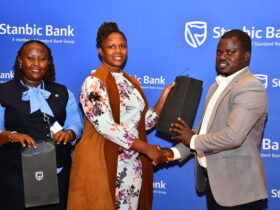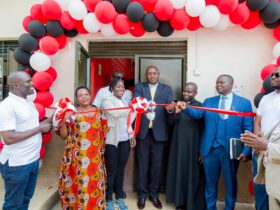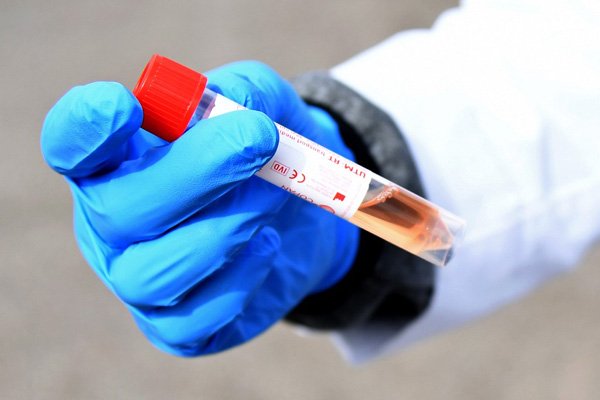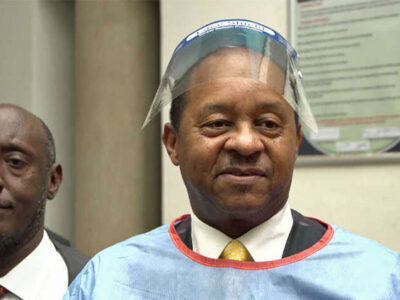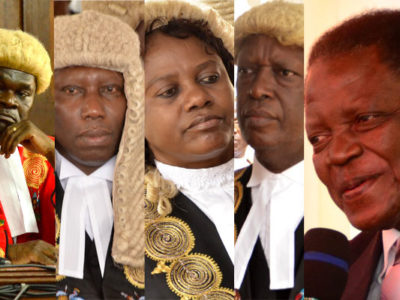Uganda has reported the highest percentage increase in the new coronavirus disease (COVID 19) in Africa, according to the Health Emergency Information and Risk Assessment report of the World Health Organisation (WHO) released on Aug.26.
It is the second time Uganda is featured among African countries with the highest percentage increase in new recorded COVID 19 cases in one week.
In the week ending Aug.19, Uganda reported the third highest increase behind Eritrea and Rwanda. But a week later the percentage increase in Uganda had overshot them.
In the latest WHO reporting period, the three countries that reported the highest percentage increase (above 100%) include Uganda (184%), Rwanda (137%), and Comoros (100%).
During the earlier reporting period, Uganda with 290 news cases versus 110 in previous week, was among countries that reported the highest percentage increase but behind Eritrea (533%), Rwanda (464%).
According to the new data, the latest Uganda figures also show a marked rise of COVID 19 deaths in the country. In the earlier WHO report of Aug. 19, Uganda had just 19 deaths with a low case fatality ratio (CFR) of 0.9%. By Aug.25 Uganda had recorded 26 COVID 19 deaths with a CFR of 1.0%. The death had risen to 28 by Aug.29. The total number of deaths reported in Africa is 20,787 reported in 45 countries, giving an overall case fatality ratio (CFR) of 2.0%.
Uganda has also featured among countries recording new health worker infections. Uganda’s numbers are once again small at just seven new infections in one week to Aug.25 compared to the continental total of 214.
In the face of the growing numbers, President Yoweri Museveni on Aug.27 announced a day of national prayer and issued new orders for politicians from his ruling party, NRM, who have been hosting large gathering in their constituencies as part of campaigns for the 2021 elections. The President said he will now not accept the claims by politicians that the crowds gather against their will.
“The order now is: “Do not put yourself in a situation where people gather around you. If you do, we shall arrest you,” the President said in a long twitter message.
The President said, on account of the stringent measures, the government took early, nobody died, for four and a half months, until July 21 when the first person from Namisindwa district in eastern Uganda, by the name of Eunice Chematara, died in Mbale, in a private clinic. Since that time, a total of 28 persons have died. 20 of them are from Kampala. The president said the deaths in Kampala are a result of “mis-education” by politicians claiming that COVID does not kill but is being used by Museveni to gag opposition political activity.
The President also declared Saturday Aug.29 a day of national prayers “to seek divine intervention in the fight against the COVID-19 pandemic”.
Museveni said a citizen who he did not name told him of a “vision” in which the President was to organise national prayers to help tackle the deadly virus.
“A certain Ugandan came to me and told me that God had told him in a vision that I should organise National Prayers, scientifically organised, for God to deliver us from COVID 19,” Museveni tweeted.
“Therefore, by the powers given to the President of Uganda by Section 2(2) of the Public Holidays Act, I declare the 29th of August 2020, a day of National Prayers and a Public Holiday. Stay in your houses or compounds and pray,” he wrote.
Museveni is following a long list of leaders who, when faced with the COVID-19 threat and seeing few ways out of the fast spreading pandemic, have resorted to national prayers.
On March 14, U.S. President Donald Trump proclaimed March 15 a national day of prayer for all Americans affected by the coronavirus pandemic and for America’s national response efforts.
“In our times of greatest need, Americans have always turned to prayer to help guide us through trials and periods of uncertainty,” Trump said, “I urge Americans of all faiths and religious traditions and backgrounds to offer prayers for all those affected, including people who have suffered harm or lost loved ones.”
The African Union Commission (AUC) in collaboration with the African Union’s Interfaith Dialogue Forum (IFDF) dedicated May 22 as a continental day of prayer against COVID-19.
“The Continental Prayer Day is aimed to rally African citizens, governments and non-state actors to intensify collaborative action towards curtailing the spread of COVID-19 and mitigating the socio-economic impacts of the disease, while strengthening the morals of the population to deal with the sanitary challenges and health haphazard caused by the COVID-19 pandemic since its outbreak early this year,” the AUC said.
On March 21, Kenyan President Uhuru Kenyatta hosted an inter-religious service marking a national day of prayer a week after it reported its first coronavirus case.
Zimbabwe’s President Emmerson Mnangagwa declared June 15 as Presidential Day of Prayer and Fasting to seek divine intervention in tackling the coronavirus outbreak. He urged Zimbabweans to come together, pray, fast and continue to observe precautions necessary to prevent the virus spread.
Tanzania’s President John Magufuli declared a three-day national prayers period from April 17 to 19 to help combat the novel coronavirus as the reported cases in the country rose.
Tanzania has not imposed any restrictions on movement or closed its borders. It has banned social gatherings and shut education institutions but left places of worship open. In June, Magufuli declared the country free from COVID-19 thanks to prayers to God.
***
The Independent




